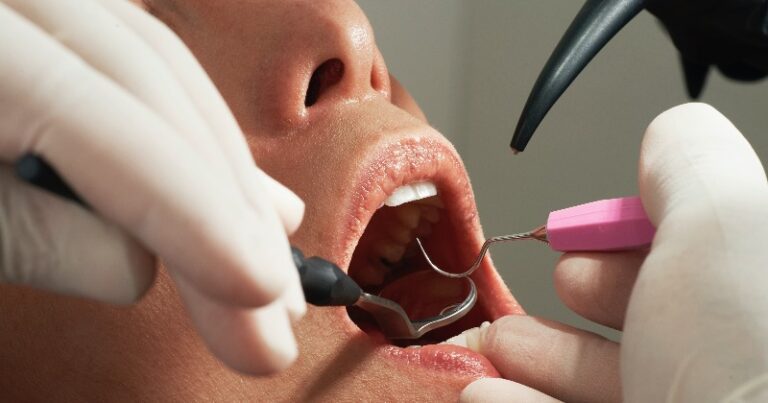Oral health is an important aspect of overall health and wellness. “According to the WHO Global Status of Oral Health Report (2022), oral diseases affect nearly 3.5 billion people worldwide, with three out of four affected people living in middle-income Countries.”
As a dentist, I have seen many patients who believe various myths about dental health. These myths not only mislead people but also harm their oral health. World Oral Health Day is an opportunity to dispel these common and debunked dental health myths and promote accurate dental health information.
Here are ten of the most common myths I’ve come across, along with the truth behind them.


Unsplash/Representational image
1. Eating too much sugar can cause tooth decay
Fact: While sugar is a major contributor to cavities, it’s not the only cause. Carbohydrates, including bread, potatoes and pasta, can also lead to cavities. Bacteria in your mouth feed on these foods and produce acid, which can erode your tooth enamel and lead to tooth decay.
2. Sugar-free sodas are good for your teeth
Truth: Although sugar-free sodas contain no sugar, they are still acidic and can damage tooth enamel. It’s best to drink water or milk instead of soda, even if it’s sugar-free.
3. White teeth are healthy teeth
Truth: While white teeth can be a sign of good dental health, it’s not always the case. Some people have naturally yellow or gray teeth, and teeth can also become discolored due to medication or aging. Good oral hygiene is more important than the color of your teeth.
4. Braces are only for young people
Fact: Braces aren’t just for kids and teens. Many adults also choose to get braces to correct crooked teeth or bite problems. In fact, orthodontic treatment may be more effective for adults after their teeth are fully developed.


Unsplash/Representational image
5. Pregnant mothers should avoid the dentist
Truth: Pregnant women should continue to see their dentist for regular checkups and cleanings. Poor dental health can lead to complications during pregnancy, including premature birth and low birth weight.
6. Toothaches are nothing to worry about if they stop
Truth: Toothaches should never be ignored, even if they stop. A toothache can be a sign of a serious dental problem, such as a cavity or infection. It is best to see a dentist as soon as possible to prevent the problem from getting worse.
7. Oral health does not affect your body
Truth: Oral health is closely related to overall health. Poor oral hygiene can lead to various health problems, including heart disease, diabetes and respiratory infections.
8. Dental health deteriorates with age
Fact: While teeth can become more susceptible to tooth decay and wear with age, good oral hygiene and regular dental checkups can help prevent dental problems.


Pexels/Representative image
9. Baby teeth don’t matter
Truth: Baby teeth are important for speech development and proper chewing, while also holding space for permanent teeth. It is important to take care of baby teeth and bring your child to the dentist for regular checkups.
10. Bleaching is bad for your teeth
Truth: When done under the supervision of a dentist, teeth whitening is safe and effective. However, excessive or misuse of whitening products can damage tooth enamel and irritate the gums. It is important to follow the instructions provided by your dentist when using whitening products.
In conclusion, it is important to understand and follow accurate dental health information. Avoiding these common myths will help you maintain good oral health and prevent dental problems. Regular dental checkups and a consistent oral hygiene routine can help you achieve and maintain a healthy smile. Happy World Oral Health Day!
About the author: Dr. Ajay Bajaj is a specialist in Conservative Dentistry and Endodontics. All views/opinions expressed in the article are those of the author.


